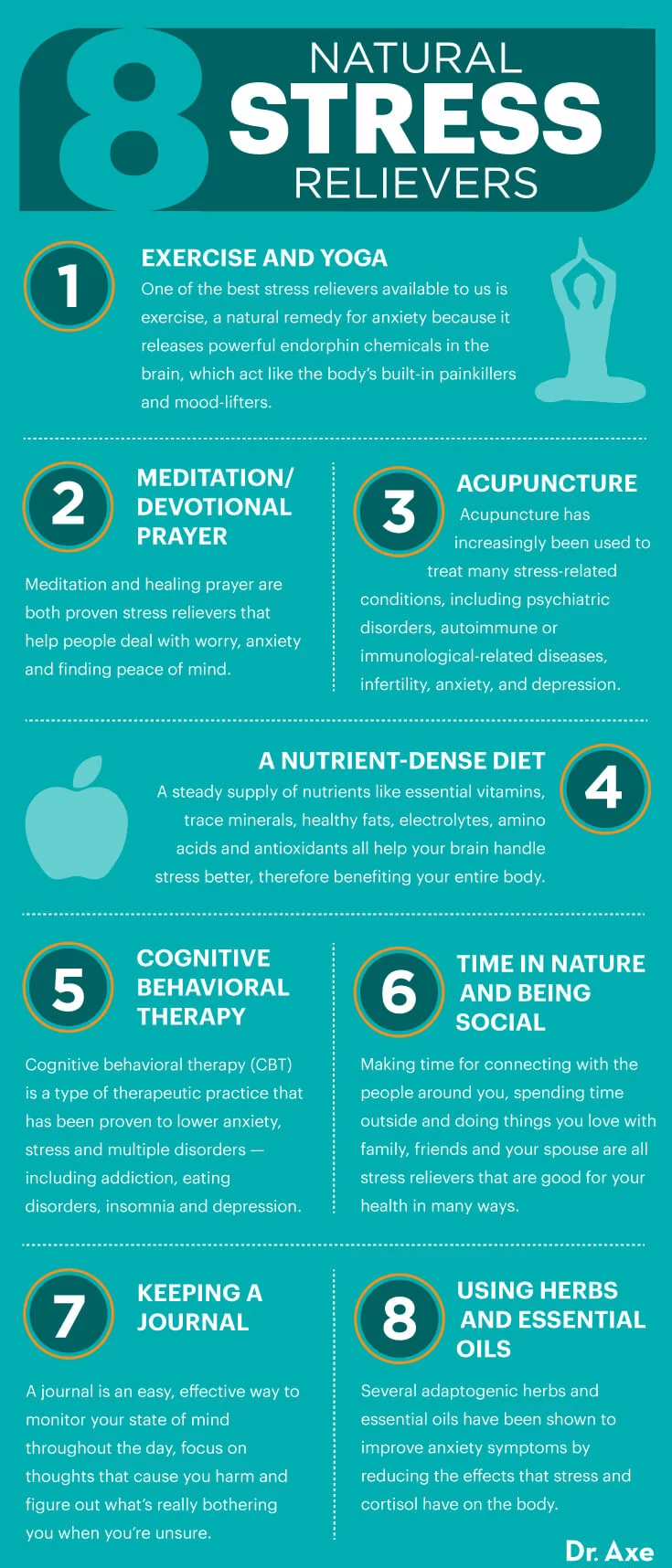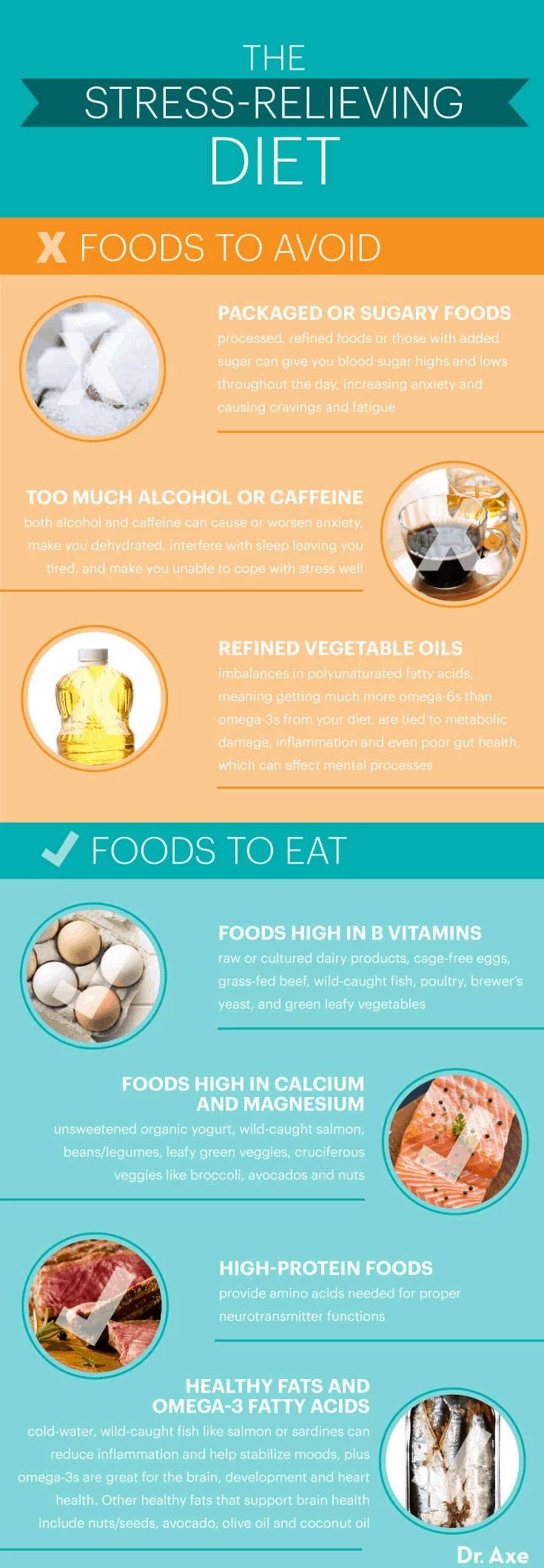This Dr. Axe content is medically reviewed or fact checked to ensure factually accurate information.
With strict editorial sourcing guidelines, we only link to academic research institutions, reputable media sites and, when research is available, medically peer-reviewed studies. Note that the numbers in parentheses (1, 2, etc.) are clickable links to these studies.
The information in our articles is NOT intended to replace a one-on-one relationship with a qualified health care professional and is not intended as medical advice.
This article is based on scientific evidence, written by experts and fact checked by our trained editorial staff. Note that the numbers in parentheses (1, 2, etc.) are clickable links to medically peer-reviewed studies.
Our team includes licensed nutritionists and dietitians, certified health education specialists, as well as certified strength and conditioning specialists, personal trainers and corrective exercise specialists. Our team aims to be not only thorough with its research, but also objective and unbiased.
The information in our articles is NOT intended to replace a one-on-one relationship with a qualified health care professional and is not intended as medical advice.
8 Natural Ways to Achieve Stress Relief
January 15, 2023

Stress: We all deal with it, yet we know how much better off we’d be — both physically and mentally — if we could only get it under control and find stress relievers that really work. While stress can be a positive, motivating factor at times (such as when you’re under pressure to perform well at work or to ace an important exam), more and more research shows that chronic stress impacts the body in ways similar to a poor diet, lack of sleep or sedentary lifestyle.
Would you believe that 75 percent to 90 percent of all doctors office visits are related to conditions caused by stress? How exactly does stress negatively affect our health in so many ways? It mostly boils down to changes in our hormones, which then cascade to an increase in inflammation and various other problems.
Uncontrolled stress experienced over a long period of time is considered “chronic stress,” dangerous and capable of increasing someone’s risk for heart disease, diabetes, weight gain or obesity, mental disorders, autoimmune diseases, digestive disorders, and even cancer.
Let’s face it, the stress we face today isn’t going anywhere, which is exactly why it’s more important than ever to find natural ways to relieve stress that work well for us. Studies show you can greatly benefit from carving out more time in your busy schedule for things like regular exercise, meditation, spending time outdoors and keeping up with fun hobbies.
If you adhere to the following eight practices, you’re likely to better manage your stress on a daily basis.
Higher Stress Levels Today
In many parts of the world, more people today report experiencing negative experiences — which includes physical pain, worry, sadness, stress and anger — on a daily basis than at any recent point in history. What is causing everyone to feel so stressed and burnt out?
The American Institute of Stress tells us that a number of studies and polls have found that some of the top reasons people feel stressed and mentally unwell include:
- Worries over finances and the economy
- Health and health care-related concerns
- Disapproval of government performance and worries over politics
- Anxiety over current events, including natural and societal events such as mass shootings, climate crisis, racial tensions and terrorism
- Stress due to social media and technology use
- Feelings of loneliness and depression
We know that stress can negatively affect nearly all parts of the body, including the musculoskeletal system, respiratory system, cardiovascular system, endocrine system gastrointestinal system, nervous system, and both female and male reproductive systems. Here are some of the ways ongoing stress can lead to discomfort and disease:
- Causes tension headaches and migraines
- Makes it harder to sleep and causes fatigue (even adrenal fatigue)
- Triggers digestive issues such as stomach aches or IBS
- Can lead to overeating and weight gain, or sporadic eating patterns and skipping meals
- Makes it more likely that people favor sedentary activities and don’t exercise
- Can lead to social isolation, loneliness and poor relationships
- Cab increase obesity, heart disease, Alzheimer’s disease, diabetes and asthma.
Related: Sunday Scaries: How to Deal with Work Anxiety
What Is Chronic Stress?
Chronic stress is considered the type of stress that interferes with your ability to function normally over an extended period, such as more than 6 months.
Obviously people of all ages can experience chronic stress, but it’s thought that younger and middle-aged adults between the ages of 15 and 49 are most likely to deal with debilitating chronic stress. “Generation Z” is considered to be the most stressed-out age group in many industrialized nations, due to factors like violence, political turmoil, poor finances and poor health, while “Millennials” report the highest rates of anxiety, loneliness and depression.
Do people always know that they are dealing with chronic stress? Not necessarily. It’s not always easy for someone to make a connection between stress in their lives and symptoms such as pain and brain fog. People also tend to struggle with identifying exactly what’s causing them to worry or to feel angry, overwhelmed or depressed.
When chronically stressed, you release more “stress hormones” such as adrenaline and cortisol, a steroid hormone in the broader class of steroids called glucocorticoids that is secreted by the adrenal glands. When levels of stress hormones remain elevated over time, they impact many bodily functions.
Natural Stress Relief
1. Exercise and Yoga
One of the best stress relievers available to us is exercise, a natural remedy for anxiety because it releases powerful endorphin chemicals in the brain, which act like the body’s built-in painkillers and mood-lifters.
Research suggests the negative effects of stress on the body seem to be exaggerated in people who are inactive, a phenomenon called”stress-induced/exercise deficient” phenotype. Because we react to stress by experiencing changes in our neuro-endocrine systems, regular exercise is protective because it regulates various metabolic and psychological processes in the body, including reinforcing our natural circadian rhythms, sleep/wake cycles, moods and blood sugar levels.
Exercises improves insulin sensitivity, can help someone become more aware of their hunger levels, improves confidence/self-esteem, and leads to better mental processing and a lower risk for depression. Can’t sleep? Well, exercise can help with that too, which is very important considering quality sleep is needed to regulate hormones and help the body recover.
Yoga has been shown to have similar benefits, reinforcing the “mind-body connection,” improving how people (especially women) feel about their bodies, helping with sleep and controlling anxiety. A review of over 35 clinical trials that tested the effects of regular yoga on stress levels and health found that, overall, yoga offers significant improvements in various physical and psychological health markers for the majority of people.
Looking for an even more impactful way to feel the benefits of exercise? Do so while listening to uplifting music. Research findings indicate that music listening positively impacts the psycho-biological stress system, helps activate the parasympathetic nervous system, improves recovery time, and has benefits for hormonal balance and brain functioning overall.
Another terrific way to relieve stress is through forest bathing. To forest bathe, you immerse yourself in naturally beautiful and health-boosting forest surroundings by using your various senses of sight, hearing, smell, etc. It’s meant to be a very peaceful and positive experience that has been shown by science to provide various health benefits. A study found that the tree’s compounds can decrease stress hormone levels in both men and women.
2. Meditation/Devotional Prayer
Meditation and healing prayer are both proven stress relievers that help people deal with worry, anxiety and finding peace of mind. Best of all, they can both be practiced conveniently anytime of day, in your own home and with no therapist, practitioner or program needed, making them a no-brainer.
Meditation and prayer have been used for literally thousands of years to improve well-being and connection to others, but today they’re actually backed up by science as well. Breathing exer
Natural stress relief meditation and mindfulness-based stress reduction are types of simple mental techniques that are practiced for as little as 10–15 minutes once or twice a day in order to bring about more “mindfulness” and reduce stress or anxiety.
Various other forms of meditation have been shown to lower physiological responses to stress, improve mental alertness, and help people overcome various emotional and physical problems, such as: anxiety, depression, poor mental health that affects quality of life, attention problems, substance use, eating habits, sleep, pain and weight gain.
3. Acupuncture
Acupuncture has increasingly been used to treat many stress-related conditions, including psychiatric disorders, autoimmune or immunological-related diseases, infertility, anxiety, and depression. Researchers have found that acupunture treatments result in changes in the cardiovascular and immune systems, increasing protective T-cell proliferation and helping with cellular immuno-responses.
Studies have shown that acupuncture is one of the best stress relievers for patients recovering from heart disease because it helps regulate the nervous system, therefore having positive effects on blood pressure levels, circulation, hormones and other factors.
4. A Nutrient-Dense Diet
A steady supply of nutrients like essential vitamins, trace minerals, healthy fats, electrolytes, amino acids and antioxidants all help your brain handle stress better, therefore benefiting your entire body. It’s also a great weight loss tip for women and men.
Some of the most nutrient-dense foods for natural stress relief include:
- Foods high in B vitamins (which the body uses to convert nutrients to energy) — raw or cultured dairy products, cage-free eggs, grass-fed beef, wild-caught fish, poultry, brewer’s yeast and green leafy vegetables.
- Foods high in calcium and magnesium — as relaxing minerals and electrolytes, calcium and magnesium are important for relaxing muscles, relieving headaches and helping you sleep. Try unsweetened organic yogurt, wild-caught salmon, beans/legumes, leafy green veggies, cruciferous veggies like broccoli, avocados and nuts.
- High-protein foods — foods with protein provide amino acids that are needed for proper neurotransmitter functions.
- Healthy fats and omega-3 fatty acids — cold-water, wild-caught fish like salmon or sardines can reduce inflammation and help stabilize moods, plus omega-3s are great for the brain, development and heart health. Other healthy fats that support brain health include nuts/seeds, avocado, olive oil and coconut oil.
On the other hand, foods to avoid in order to keep stress levels down include:
- Packaged or sugary foods — processed, refined foods or those with added sugar can give you blood sugar highs and lows throughout the day, increasing anxiety and causing cravings and fatigue.
- Too much alcohol or caffeine — both alcohol and caffeine can cause or worsen anxiety, make you dehydrated, interfere with sleep leaving you tired, and make you unable to cope with stress well.
- Refined vegetable oils — imbalances in polyunaturated fatty acids, meaning getting much more omega-6s than omega-3s from your diet, are tied to metabolic damage, inflammation and even poor gut health, which can affect mental processes.

5. Challenging Your Thoughts with “Cognitive Behavioral Therapy”
Cognitive behavioral therapy (CBT) is a type of therapeutic practice that has been proven to lower anxiety, stress and multiple disorders — including addiction, eating disorders, insomnia and depression. Knowing that at least 50 percent of the time experiencing a mental disorder is due mostly to chronic, untreated stress reactions, therapists use CBT to train all types of people to better react to situations that are stressful.
CBT focuses on challenging and changing your thoughts first and foremost, since the way you perceive an event (not the actual event itself) means everything in terms of how your body reacts. Once you can identify the root thought pattern that is causing harmful behaviors, you can work on changing how you think about events and therefore react to them.
The idea behind CBT is this: If you can reframe the way you think about events in your life — for example, instead of panicking over a job change you choose to embrace it, prepare as best you can and seize the opportunity to start fresh — you can literally reduce the stress you wind up feeling from the event.
CBT is useful for training us to avoid internal causes of stress, such as “all-or-nothing” thinking, jumping to conclusions, pessimism, having unrealistic expectations for ourselves, always expecting the worst-case scenario, and feeling guilt or shame over events that are out of our control.
6. Spending More Time in Nature and Being Social
Making time for connecting with the people around you (like practicing fika), spending time outside and doing things you love with family, friends and your spouse are all stress relievers that are good for your health in many ways. Social connection is tied to longevity, since it helps people feel like they’re a part of something larger than themselves and helps give them perspective.
Being outdoors has some similar effects, reminding people that they’re one piece of a much larger universe, lifting their moods and making it easier to get good sleep.
For many American workers, their work stress accelerates because they don’t take their full vacation or who are always on call. Instead, take your deserved vacation days to give your body and brain a break from work. Same story with a packed work day — go outside for a walk; don’t eat lunch at your desk; try not to work past 5 p.m. if you started earlier, etc.
7. Keeping a Journal
Keeping track of your emotions, both positive and negative, along with the events that can trigger them helps you identify what’s causing stress. A journal is an easy, effective way to monitor your state of mind throughout the day, focus on thoughts that cause you harm and figure out what’s really bothering you when you’re unsure.
A journal can also reduce stress by helping you to stay organized, such as listing out appointments, household responsibilities, job assignments or other tasks so you’re less frantic and likely to miss important deadlines.
8. Using Adaptogen Herbs and Essential Oils
Several adaptogenic herbs and essential oils have been shown to improve anxiety symptoms by reducing the effects that stress and cortisol have on the body. Adaptogens (including ginseng, ashwagandga, maca, rhodiola, holy basil and cocoa) are a unique class of healing plants that balance, restore and protect the body and make it easier to handle stress by regulating hormones and physiological functions.
Essential oils such as lavender, myrrh, frankincense and bergamot are also capable of reducing inflammation, improving immunity, balancing hormones, and helping with sleep and digestion.
Bonus Stress Relievers:
- Breathing Exercises
- Cooking Therapy Benefits for Stress + Mental Health
- Singing Bowl and Sound Bath Benefits for Stress Relief & More

Final Thoughts
- We can’t always control sources of stress in our lives, but we change how we react to them. The good news is that the human body is actually designed to experience and handle stress, which is exactly why our bodies react to it so strongly.
- With some practice, we have the power to learn to use certain elements of stress to our advantage (for example, the fact that stress keeps us more alert and attentive), while better controlling other negative reactions (like digestion problems or giving in to cravings for unhealthy foods).
- That’s why it’s so important to find the proper stress relievers to maintain a strong quality of life. The eight stress relievers above can help you maintain a good mood, remain calm and better handle your day-to-day stress.








